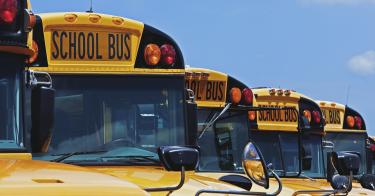For years, opponents of school choice have been predicting that Arizona’s Empowerment Scholarship Accounts policy would “bankrupt” the state. Instead, as the state’s education budget surplus demonstrates, school choice has reduced costs.
This won’t surprise Arizonans who have become accustomed to the empty scaremongering from Chicken Littles claiming that school choice would make the sky fall. But then again, they aren’t the target audience for this pernicious propaganda. Conservative lawmakers in other states are.
Over the past three years, Republican lawmakers in a dozen states have made all or nearly all K–12 students eligible for school choice. More red states, most notably Texas, appear ready to join them. To halt this progress, opponents of school choice have settled on a message intended to give conservatives pause: that school choice supposedly is a budget buster.
“The universal school voucher program is unsustainable,” Arizona Gov. Katie Hobbs, a Democrat, claimed last summer, arguing that the program needed to be curtailed lest it “bankrupt our state.” Her proposed budget would have rolled back ESA eligibility, kicking out nearly 50,000 students.
School choice opponents in other states have echoed Hobbs’s scaremongering. Texas Rep. Trey Martinez Fischer, chair of the Texas House Democrats, claimed this year that Arizona’s ESA supposedly created a “nearly $1B[illion] problem of skyrocketing costs.”
Kentucky Lt. Governor Jacqueline Coleman recently warned voters considering a school choice ballot proposition, Amendment 2, that ESAs supposedly blew a “massive hole” in Arizona’s state budget. School choice advocates have heard legislators in several states express skittishness about the potential fiscal effects of expanding school choice.
Fortunately, Arizona’s Republican-controlled legislature knows better. The typical ESA student receives about $7,500 annually from Arizona taxpayers, compared to the more than $12,000 per pupil that Arizonans give public schools through their state and local taxes alone.
Even looking only at state dollars, the ESA program typically costs taxpayers hundreds—if not thousands—of dollars less per child than the public school system. As students shift from public schools to ESAs, the state saves money.
In the first two years since ESAs went universal under then-Gov. Doug Ducey, Arizona enjoyed a massive overall state budget surplus one year, and a net savings in its state education funding formula (which includes ESAs) compared to what it budgeted the second. After lengthy budget negotiations this year, the ESA program’s universal eligibility emerged unscathed.
ProPublica and the Grand Canyon Institute claimed that the ESAs were the main culprit for the $1.4 billion deficit Arizona faced this past year. However, not only has this deficit been eliminated, but the latest education budget figures tell a very different story.
According to Arizona’s nonpartisan Joint Legislative Budget Committee, the ESA program cost $92 million more than had been forecasted this past year. However, the surge in enrollment to more than 72,000 ESA students coincided with a reduction in public school enrollment that has reduced costs by $93 million below forecasts.
By the end of the 2023-24 school year, 62 percent of new ESA students had switched from a public school in the prior year. When factoring in shifts in student enrollment among the public district, public charter and ESA sectors, the JLBC estimated last month a net savings of more than $350,000 relative to the enacted budget for fiscal year 2024.
Moreover, these are conservative estimates. As the Goldwater Institute observed, the JLBC analysis reviewed only the basic state aid formula, and “did not address millions in additional ESA savings from all other sources” of state, local and federal funding.
On August 26, the Arizona Department of Education released its revised budget figures for the fiscal year, showing a surplus of $4.3 million.
The sky isn’t falling. Any budget woes Arizona faced this year were despite—not because of—the state’s school choice policy. Lawmakers considering school choice policies in other states would do well to ignore the Chicken Littles.
This piece originally appeared in Fox News





